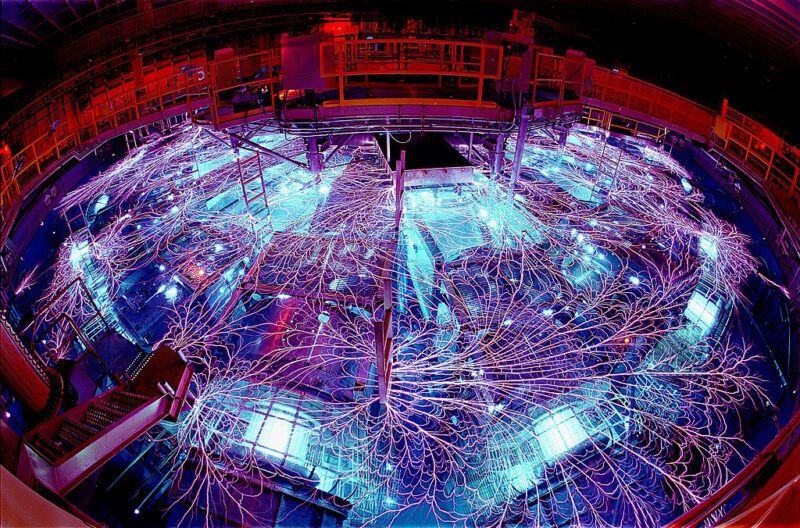Tech billionaires and entrepreneurs are betting big on fusion power, the notoriously elusive and potentially limitless energy source that mimics the process of the sun.
Jeff Bezos, Marc Benioff, Peter Thiel, and Bill Gates, among others, have poured hundreds of millions into fusion startups, hoping to achieve what has been a decades-long scientific holy grail: creating more energy from a fusion reaction than is required to start one.
Fusion power entails fusing two light atomic nuclei, such as hydrogen, to form a heavier one, such as helium. The resulting reaction releases enormous amounts of energy, without carbon emissions and very limited radioactivity. However, achieving and sustaining fusion reactions at high temperatures and pressures requires complex engineering and materials, as well as huge amounts of energy.
In recent years, several fusion startups have claimed to make significant progress, using different

approaches and technologies. Some aim to build compact fusion reactors small enough to fit on a truck or a ship. Still others are sprawling operations using powerful magnets, lasers, or plasma injectors to control and confine the fusion fuel.
Different Strokes
One of the most well-known fusion startups is Commonwealth Fusion Systems, a spinoff from the Massachusetts Institute of Technology. The company raised over $250 million from investors including Salesforce CEO Marc Benioff and Microsoft founder Bill Gates. It’s aiming to build a demonstration reactor by 2025 to yield 50 megawatts of fusion power.
Amazon founder Jeff Bezos and OpenAI president Sam Altman are backing Helion Energy. The company has developed a device that uses magnetic fields and pulsed electricity to compress and heat hydrogen gas until it fuses. It aims to build a commercial reactor by 2030 that can generate 100 megawatts of fusion power.
Other notable fusion startups include TAE Technologies, funded by PayPal co-founder Peter Thiel and Google co-founder Larry Page; General Fusion, supported by Amazon Web Services CEO Andy Jassy and Shopify CEO Tobias Lütke; and Zap Energy, which received an investment from Chevron.
The peak interest in fusion has been boosted by a recent breakthrough at Lawrence Livermore National Laboratory, where last December scientists finally achieved net energy gain from a fusion reaction for the first time in history. This means that they produced more energy from the reaction than they put in with lasers.
The tech moguls who are backing fusion power see it as a game-changing technology that could solve the world’s energy and climate problems. But more so, they see it as a fabulously lucrative profit opportunity, as fusion power could potentially disrupt the trillion-dollar energy market.
Fusion power still faces many technical and regulatory hurdles before it can become a reality. Some experts doubt that it will ever be commercially viable or competitive with other renewable energy sources. Others warn that it could pose safety and security risks if not properly regulated.
Despite these challenges, the tech moguls, armed with war chests of billions, are chasing the dream of fusion power, undeterred by uncertainty or the long time horizon. They’re driven by a vision of creating a clean and abundant energy source that could benefit humanity – and their bottom line – for generations to come.










